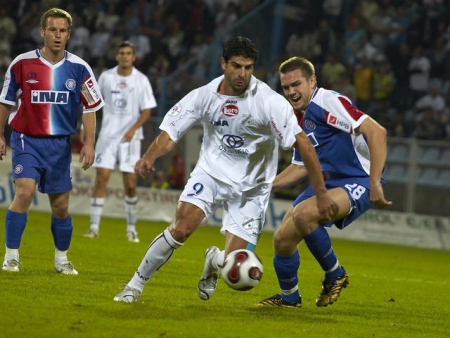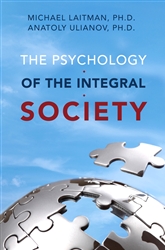
Dr. Anatoly Ulianov: If a person perceived the world as an integral whole, he would see that all of his urges are realized in the form of correct contacts with others, positive and negative alike. Then he would no longer have to harbor any pent-up feelings, having to restrain himself.
Dr. Michael Laitman: Take soccer for example. If this game is realized correctly, if the teams are permeated by friendship, then the game can be filled with love. It will be a competition of friends who receive satisfaction from the actual process of the game.
In this game, one person’s superiority over another will lie in the answer to the questions: What was your inner experience? What was the goal for which we played? How did we collate ourselves with others? How were our positive or negative qualities expressed?
You can experience the most astonishing states here: you play a game with your egoism and against it, establish contact with your friends and with the opponent, suppressing the aspiration to stand out or, vice versa, expressing yourself and standing out, but for the sake of the team. Today none of this exists in soccer; it’s become a business.
This moral, inner, spiritual research of oneself and others during this externally harsh game holds enormous opportunities for “intellectual” soccer players.
I think that any competition—besides those where we inflict harm on others, such as hunting—is a venue where we can discern a person’s attitude toward others and express it in bold relief. The elements of the game will enable one to develop and attain a state of enormous self-attainment.
Dr. Ulianov: Should we change the rules of the game, or discuss and analyze what happened and how it happened after the game? Should we watch video recordings of the game and go over the situations that occurred during the game?
Dr. Laitman: I think the game should be stopped every ten minutes in order to do a “restart” and return all the players to the correct state. They should check: What did we attain over these 10 minutes? What kind of inner work did each person succeed in performing? How did he look at others? How did he receive a pass? How did he steal the ball? How did he participate in connecting with others? And how did he treat his opponent?
Ten minutes of inner work is a lot. The ball, the field, and the game are just external excuses to conduct an inner self-analysis.
Today we can’t even imagine how to conduct a true evaluation of our inner realization, which is the work of the winners. But I think we will get there and we will learn to take energy expenditures and intentions into account. This will allow us to weigh teams of players as a whole and each player in particular.
Dr. Ulianov: What is the right mindset in a game?
Dr. Laitman: The right mindset is one that’s aimed at unity and integrality. In Nature, there are two seemingly opposite forces—a positive one and a negative one. The opposition in a game depends on how we combine our individual, egoistic vectors within a team.
When we unite in a team, what do we play with the opponents? In other words: What is the victory? It’s very important to discern this. A goal someone has scored is not a victory. On the level of our world it is a physical achievement. But above it, internally, we played a game of unification, the game of suppressing ourselves and connecting on a higher level, above ourselves.
What was the result that we reached through this inner game, the passes of our own egoistic and altruistic forces and qualities? Which points did each of us count for himself? How much did he advance in his self-analysis during this game?
These games have tremendous potential to help us go through levels of internal development quickly. This is a question of the future, but I don’t think it is too far off.
Any forms of human activity, especially forms that include competitive elements on the level of our world, can give us an enormous opportunity to build opposite actions above them and to analyze.
The above points were taken from the book The Psychology of the Integral Society by Dr. Michael Laitman and Dr. Anatoly Ulianov. Also available as eBook (PDF, Kindle & ePub formats).

